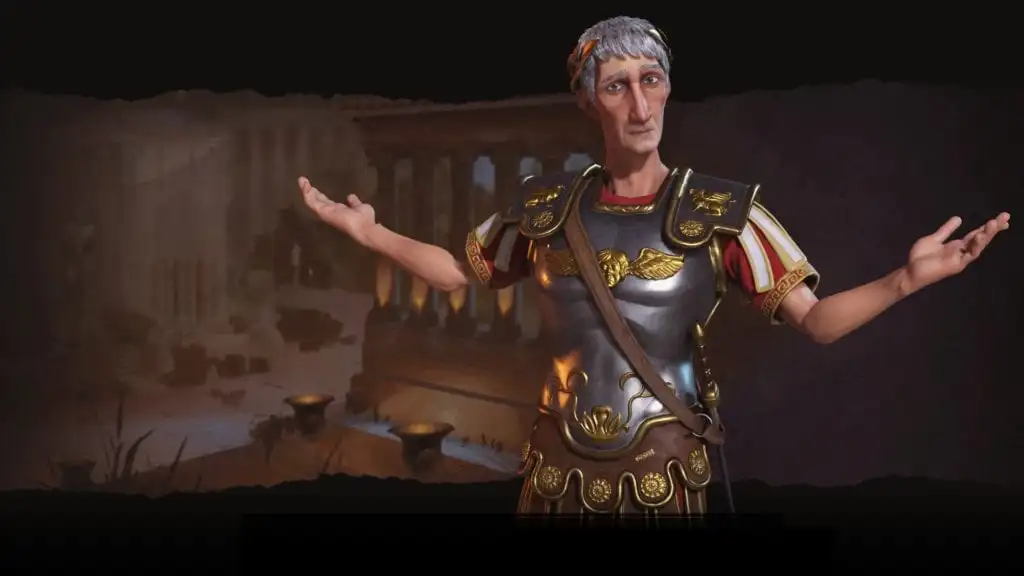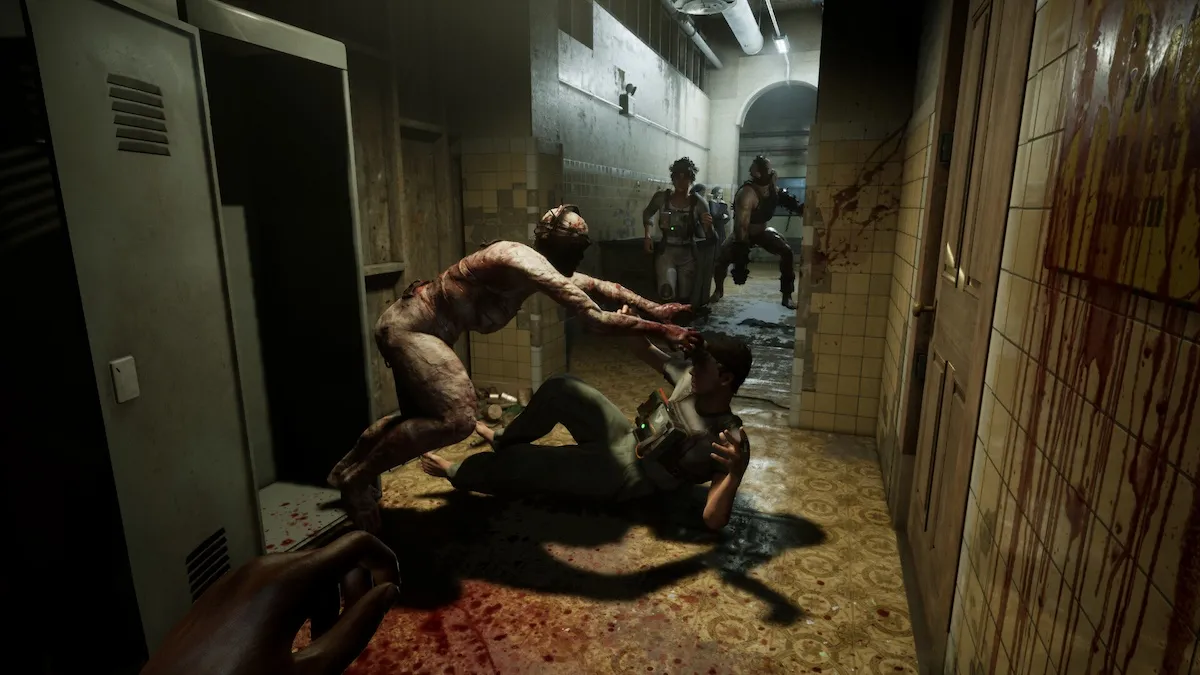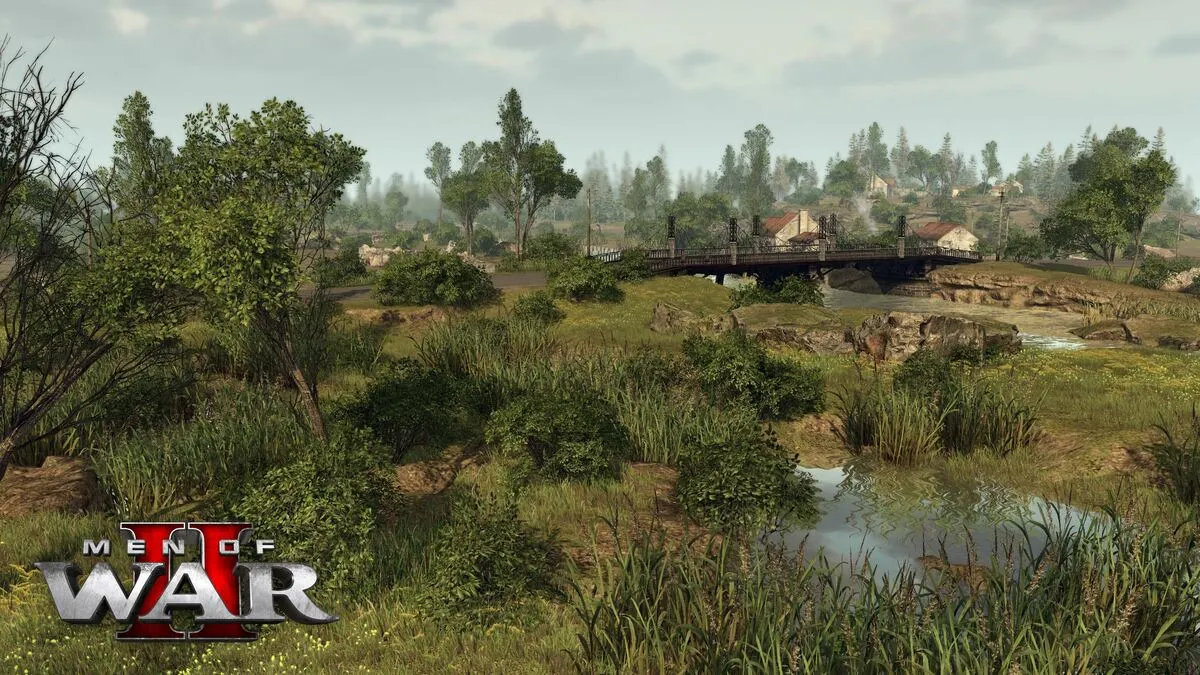I hate the Romans. I hate the Romans so much. They’ve popped up in every single one of the three games of Civilization VI I’ve played, and as of the third game, I never want to deal with those self-righteous expansionist pricks again.
I’m generally rubbish at Civilization (despite, yes, adoring the series) and I really didn’t spend a huge amount of time with Civ V, so it’s going to be difficult for me to sit here and focus on all of the changes between the two. Instead, I’m going to narrate a few bits of those three games I played, and explain a few of the things that I think are new. Hopefully, that’ll give you some idea of how it goes.
The preview code offered up ten civilizations, the Prince difficulty, and the ability to play a complete single-player game on those settings. I could talk a little about performance, visual options and the like, but I’ll leave that for closer to launch as anything I say now might well change before then, despite how complete this code feels. I’ll say that I hit a couple of minor bugs but no performance issues, which is actually a lot better than I expected for preview code.

From this tiny city, the mighty German empire will… uh… splutter and do very little of consequence, actually. I mean, I’m in control, so…
First game: I’m Germany, because leader Frederick Barbarossa has a magnificent beard. Their benefits are U-Boats, the Hansa district, and two things that are way more important than I thought when I first started playing – each city can build one more district than usual, and an additional slot for military policies.
This first game was mostly a learning experience. I wasn’t expecting it to go well (hell, I wasn’t expecting to finish it), so I just needed to get myself back into the Civilization groove.
Considering my German empire started by asking me to choose policies, research both actual research things and civics (across two entirely separate trees, fuelled by science and culture respectively), and expand my cities outwards by deciding where to place districts which had terrain requirements and adjacency bonuses and all sorts of other things… yeah, that was probably a wise idea.

Different governments offer up a different number of policy slots of each type, and which policies you slot in makes a big, big difference.
As it turned out, I was all alone on a small-ish island, barring a metric shitload of barbarians. I don’t remember prior Civ games having this many barbarians, or them being quite so problematic. My usual tactic of “leave a vague guard in town and send everyone else exploring” didn’t quite work out, what with barbarians actually being somewhat dangerous and the bastards having a fun time pillaging the improvements.
Getting city walls so that the city itself could bombard them was nice. Building an Encampment district would have done the same, too, and cities can’t be taken until both the Encampment district and the city itself have been “defeated.”
Districts are a little weird. They’re sub-slots that are built within the tiles controlled by a city (the ones you can farm, and so on) but you can only build one at certain population thresholds. Considering how important they are, they really emphasise specialisation: you need an Encampment if you want to build barracks, for instance, while a science-y district is essential for things like libraries or research labs.
It’s a neat touch, although I’m not going to lie: it confused the hell out of me for awhile. Forward planning is essential, because there are a lot of requirements and bonuses for each district. Certain districts give bonuses to adjacent ones, but you also need to bear in mind natural resources and improvements you’ve already built – unless you want to destroy that coal mine when you grab a new district. Some get bonuses from being next to mountains. Others have requirements that I don’t honestly understand; one of my cities in a later game couldn’t build an Acropolis, and I have no idea what requirement was missing.
Anyway, that first game. I very quickly met the Japanese and the Kongo, the latter of whom expanded onto my little island and built as many bloody cities as they could. While they expanded, I stagnated; I discovered a religion and spread it to the Kongo, making them adore me, but I was still a tiny little civilization incapable of really doing much. Then the Romans turned up, and they’re dickheads. We’ll get to them, but that was the point where I decided I’d start again.

Here we have the Japanese berating me for not focusing on faith. Guys, we’re not proponents of Bushido.
Second game, I thought I’d give the Japanese a go. Other than samurai (obviously) they get an electronics factory as a unique building; a bonus for districts placed next to each other; and a “Divine Wind” bonus that essentially gives them a strength buff to units fighting on the coast or in shallow water, and lets them build certain districts – culture, faith, and military – an awful lot faster.
This time around, I opted to focus on research. My cities were built up to focus primarily on that, with everything else secondary to that. That’s probably not ideal considering the Japanese bonuses, but I figured those bonuses would even things out a bit: I could afford to focus on research, because I had bonuses to building the other districts when I needed them, and the adjacency bonuses would help out.
Research (and Civics, the “second” research tree) function a little differently in Civilization VI. Almost every single tech has a “Eureka” bonus that drastically lowers the time it takes to research, most of which tie into the tech’s purpose.

Every tech also has a quote associated with it, as is the Civilization norm, and while Sean Bean is no Leonard Nimoy he does a decent enough job. I mean, he manages to pronounce methylethylamylophenylium.
Kill three barbarian units and your people understand the need for better weapons, so Bronze Working is suddenly faster to develop. Kill units with slingers and your people pine for effective ranged weapons, so Archery can be acquired a lot faster. Meet another civ and your people decide that communication matters, so Writing is speedier. Etc. On the one hand, it’s a neat reward for following particular paths; on the other hand, it can be a pain in the arse when you want to develop Electricity and discover that all of its pre-requisite techs basically require a strong navy. But then, that might just be me because I want all of the bonuses so I can speed things up.
This time around, my nearest neighbours were the Germans and the Norwegians. It’s probably worth noting here that every civ has particular agendas and ideals, and following these is the best way of making friends. The Norwegians, for instance, are all about strong navies, and they’ll look down on you if you don’t have one.
Hilariously, the English agenda can best be described as “racism”: they dislike everyone that isn’t from their home continent. Considering colonialism and the British Empire, that’s actually fairly fitting – although I do worry that it might force particular diplomatic reactions a bit too much. The bonuses and penalties given to your “friendship” by these agendas are massive, although at least they have randomised “hidden” agendas (uncovered via diplomacy or spying) that will change the way they behave from game to game. At least, I think so.

There’s also a lovely strategic view, if you prefer a board game-style look at the game. I’ll also note that those notifications at the top get a bit annoying when there are lots of civs doing things.
Anyway, things were going swimmingly. The Norwegians didn’t like me because I had no navy, but screw them. The Germans didn’t like people who associate with city-states, which was fine, because I didn’t know any. Spain was a religious superpower who hated people trying to spread foreign religions to them. They didn’t like me, but they were on the other side of the world and just kept begging me to join them in a joint war against the Germans… which I ignored, because they were on the other side of the world and the Germans were on my doorstep. I’d survived the early barbarian raids, established a foothold, and set myself up a scientific superpower.
Then the game ended because the Germans achieved a religious victory. Bollocks.
Lesson learned: pay attention to religions. Also, pay attention to the victory conditions and see who’s in the lead and how close they are to success. I hadn’t given a damn about the Germans spreading religion to my cities because I hadn’t founded one, although this explains why the Spanish were so desperate to win a war against them.
Third game: I’m the Greeks. The Greeks have a pretty heavy focus on culture and get a free policy slot, which means they can chase pretty much whatever they like. This time, I’m on a large continent with the English, the Americans, and the Romans, and this is where my loathing of the Romans really kicked off.
The Romans were my neighbours to the east, and they’re heavily expansionist, getting annoyed at empires who don’t make the most of the land around them by founding cities. Now, I planned to found plenty of cities, but for one thing I kept bumping into city-states, and for another, I kept dealing with barbarian incursions, which slowed my settler production.
City-states are an excellent little addition. These aren’t entirely new to Civilization, but they have a much bigger impact in Civ 6. Every now and then, you accrue enough influence to earn an Envoy, which can be sent to any city-state you’ve met. When you have enough envoys in place, you become suzerain and get bonuses related to that city-state’s speciality: a bonus to military production in your capital, for instance, if that city-state is focused on the military. Each also has an entirely unique benefit for the civilization who has the most envoys there. One of the most wonderful I’ve seen so far meant that I got one of every resource I’d uncovered but didn’t actually control.
Being suzerain has other benefits – like that city-state joining you in any wars – but the upshot is that controlling these things is kind of a big deal, and depriving your rivals of their benefits is equally big. If you’re about to go to war with someone then you might want to undermine their control of a city-state before doing so, to avoid fighting a war on two fronts.
Now, I also spent a bit of time dealing with these city-states and building up trade routes, when the Romans started denouncing me and getting preachy about how I should expand. I spotted their troops moving near my capital, called them up on the 1000 BC equivalent of the telephone, and told them not to settle anywhere near my goddamn cities. They agreed. A few turns later, Athens was bordered by a brand new Roman city, and I got a little pop-up telling me that Rome had broken a promise to me.
If I wanted to go to war with them, I’d need to do it fast. If they had time to build up that city, I’d have a much harder time dealing with it. The problem was that it was also right next to a city-state they controlled, which meant marching east would lead me into conflict with both of them. Not only that, but the Americans were on the continent, and the Americans really don’t like people disturbing the peace on their home continent. If I screwed up, I’d wind up at war with Rome, America, and about three city-states, let alone anyone else who got annoyed at my “warmongering” and decided to dogpile on.
(As an aside, as you progress, you unlock the ability to declare all sorts of types of war, and there are all sorts of units bought with Faith to deal with religious incursions – including, yes, Inquisitors. Faith is pretty much a second battleground.)
So I waited a little while, envoyed my way into control of another nearby city-state, and then went to war. My legitimate casus belli – they’d broken a promise to me, and had denounced me – meant that my “warmonger penalty” was reduced enough that, thankfully, the Americans didn’t get involved. My hoplites went into battle, backed by catapults, and we razed that city to the ground.
Which did piss off the Americans, because razing cities incurs a massive warmonger penalty… but screw it. I didn’t want to control it; it was so close to Athens it was touching borders. I merrily marched along, burned down another Roman city, and after horribly crippling them I let them sue for peace in exchange for a nice big tribute. Other than shouting to everyone about how horrible I was every now and then, the Romans were basically inconsequential for most of the rest of the game.
So basically, screw the Romans, because I’ve had it with their shit.
I’ve gone on for quite awhile, but I do want to add that I didn’t actually finish that game. This primarily wasn’t for outside reasons, but because I find Civilization games get a bit more boring as they go later on, and I’m not convinced that Civ 6 does this any differently. Towards the end, progress starts to dramatically slow and unless you’ve got something going on, it’s a lot of clicking End Turn and then waiting for the AI to move. AI turns aren’t actually that slow for the most part, although on a big map with a bunch of other civs, they did start to chug a bit around the 1800s.

As I haven’t really mentioned it in the piece itself, I’d also like to note that the UI is really clean and simple, with sub-menus like the research tab rarely obscuring your view of the world.
Then again: preview code. Optimisation is doubtless still being done, and speeding up the time between turns would go a long way towards the end-game being tolerable. Or maybe I just need to be more pro-active about the end game, but as I was chasing either a cultural or research victory, I wasn’t doing much but building and researching. Or maybe setting the game speed to Quick would be a better idea. Or…
So let’s sum up. Based on a few games, Civ 6 seems to have a much more interesting AI system with more defined personalities than I’m used to – I hate the Romans, by the way – as well as detailed civics to support the government systems, tweaks to the research tree to reward the way you play and not just sit back and do nothing but research, important city-states, a strong early game, a district system that is both confusing and rewarding, and a lot of other tweaks and adjustments that make it feel quite different to how I remember Civ being.
Cautiously, then, I’m a fan. Now, I don’t know how it’ll stand up to repeated plays and how quickly it’ll start to get repetitive. I don’t know if district planning is going to be super-important, less confusing than it first seems, or what. I don’t know whether my worries about the late-game will be ill-founded. I don’t know how the more fixed (or at least, more obvious) AI personalities will work out across multiple campaigns. I can’t say how Civilization V die-hards will take to this, because I’m not one of them. There’s a lot I can’t judge without more extensive play, and a lot that might well be tweaked as the game gets closer to launch. For now, though, I’m having rather a lot of fun.













Published: Sep 29, 2016 03:00 pm